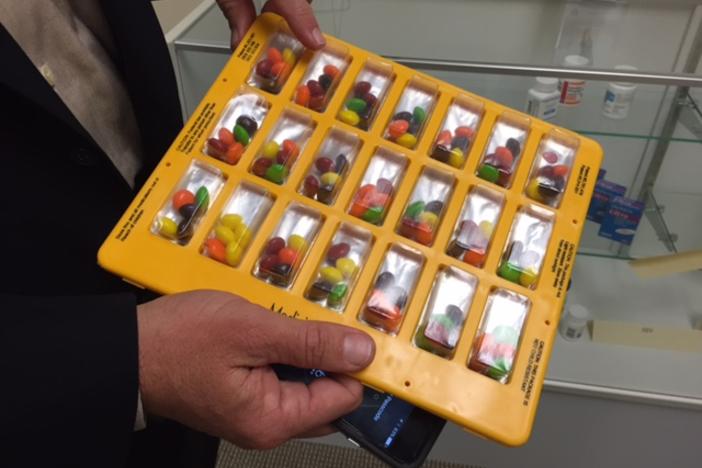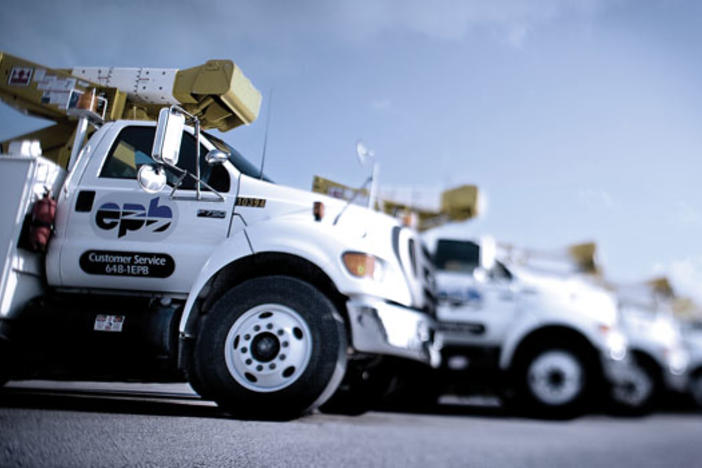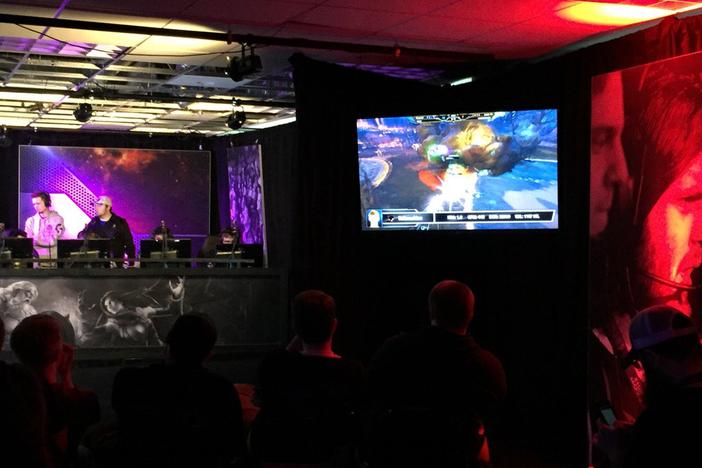
Section Branding
Header Content
The FCC's Big Internet Decision (No, Not That One)
Primary Content

The FCC voted 3-2 Thursday to adopt new net neutrality rules, and Verizon had the best response of any of the major internet service providers that will soon be regulated like other utilities.
The company issued a blog post in Morse code.
As if that wasn't enough to get the point across that Verizon thinks the FCC's actions are a throwback to outdated 1930s-style regulations, the link "for readers in the 21st century" takes you to a press release that looks as if it was banged out on your grandfather's ancient Underwood typewriter.
If Verizon had shown this kind of creativity in its pre-vote lobbying, maybe the outcome wouldn't have split along party lines, with the three Democrat commissioners carrying the day. As it stands now, the ISPs will have to rely on litigation or last-minute legislation from Congressional Republicans to avoid net neutrality. If not, then when the rules go into effect 30 days after they are posted in the Federal Register, all (legal) content must be treated the same on the internet; no charging Netflix for "express lanes" of non-buffered streaming movies, for example.
If you want to learn how the FCC arrived at this point after a year of debate, read Tim Wu in the New Yorker. He's the Columbia law professor who first coined the phrase "net neutrality." You should also read his book The Master Switch, in which he details the rich history of media monopolies.
While my Twitter feed was collapsing under the weight of reactions to the FCC vote, an earlier decision by the commissioners went largely unnoticed. Yet it can be argued that it will have as much impact on consumers as net neutrality.
City officials in Chattanooga, Tenn. - just a few hours up I-75 from Atlanta - are celebrating the decision. The FCC, in another 3-2 vote, said that Chattanooga can offer its superfast, 1GB-per-second fiber broadband network to surrounding communities. State laws had prevented that from happening there and in Wilson, N.C., and existing internet providers in both cities were just fine with that situation. But the FCC said it had to reluctantly override those state laws because of the impact on those living in "unserved and underserved areas." That means more competition for those ISPs, which they could always deal with by offering better service, faster speeds and aggressive pricing.
In the meantime, more residents near Chattanooga and Wilson will soon be able to enjoy net speeds 200 times faster than what's currently available. While the FCC's decision only applies to those two Southeastern cities, 20 other states have similar laws protecting the commercial status quo.
A CBS News story profiling Chattanooga's fiber service spoke of the $300 million cost, but also the return on that investment: a smart power grid that makes energy use more efficient, a new reputation as a Southern tech hub that's attracted $400 million in new investments and 6,000 jobs. Those numbers may be enough to convince other municipalities to follow the same path.
Net neutrality, as envisioned by its proponents, means no discrimination against content and no special payments to ISPs to deliver that content. But the earlier FCC decision could unlock new business and tax revenue for cities, more opportunities for small businesses and entrepreneurs, and a first shot at the internet for those living in rural areas.
One decision means my "House of Cards" addiction will continue without a hitch. The other could open up a new world of access for many Americans.
How's that for 21st century impact?
Secondary Content
Bottom Content





